Affordable and high-quality mics for acoustic guitar.
If you’re interested in getting the best mic for acoustic guitar recording sessions, get ready to be swept away by hundreds of potential options. Such microphones are typically condenser models that are available at a broad range of price points.
Given how oversaturated the current market is, you might struggle to find the best mic for acoustic guitar owners that will suit your exact needs while offering the necessary level of audio quality. To simplify this process for you, we’ve put together this list of high-rated microphones created with recording guitar music in mind. All options on the list have proven to provide rich, clear audio, capturing the authentic beauty and subtle tonal details that acoustic guitars are universally beloved for, ensuring the recording sounds as natural as possible.
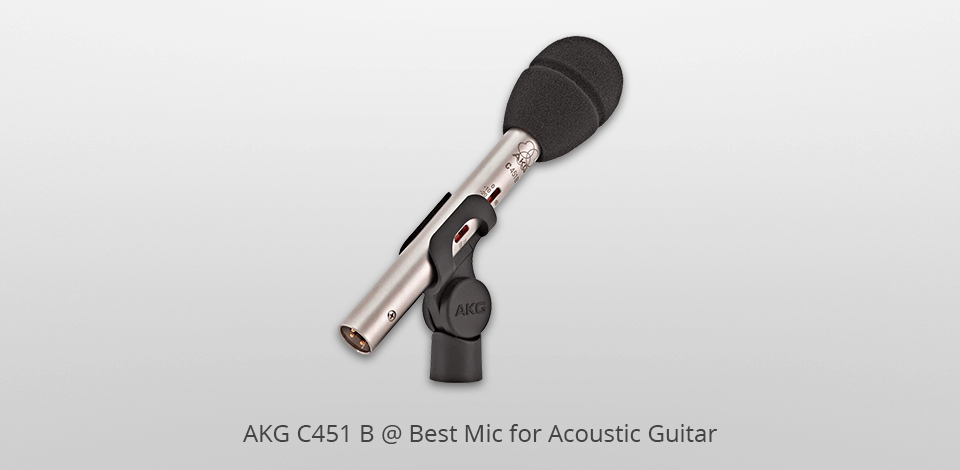
Power: 48V | Polar patterns: Unidirectional | Connectivity: Wired | Frequency response: 20 Hz - 20 kHz
This microphone incorporates several new technologies to it that have been specifically designed to improve upon the performance of existing models. One of the best things about this particular model is that it contains AKG's groundbreaking Acoustic Telecaster Technology, which helps produce very tight and accurate signal levels. The AKG C451 will allow you to record vocals and guitar directly to a mono tape, as well as making sure that you get the best sound quality possible from your input device.
It is able to reproduce sound very clearly, has a unique and great sound quality, and because it has a cardioid pattern that ensures accuracy. It also has a large diaphragm that increases its tonal variety and makes the sound it produces even warmer. Another great thing about the C451 is that it has a two-way switching, which enables you to change between cardioid and omnidirectional pattern.
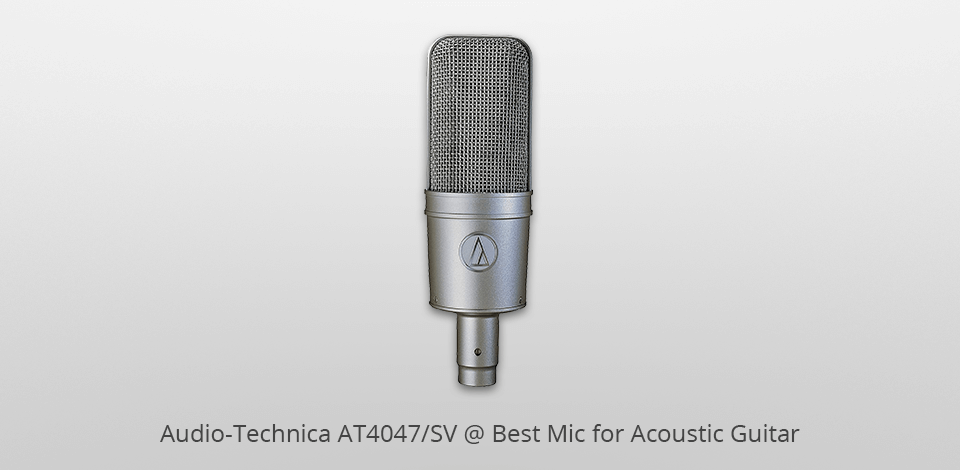
Power: 48 V | Polar patterns: Unidirectional | Connectivity: Wired | Frequency response: 20 Hz - 18 kHz
Audio-Technica AT4047/SV microphone is designed for people who play acoustic guitar or are looking for microphones that will give you a great recording of a great quality. It comes with a pre-installed program called Live Wire, which gives you a facility to monitor your sound quality even from another location. In addition, the built-in noise reduction feature reduces the background sounds to make your audio tracks sound much better.
The AT4047 has four different settings namely Auto, Detail, Rock and Dance which help you to set the sensitivity, bandwidth and the frequency response in accordance with the type of performance you want to perform. You can adjust the Mic gain and the Loudness slider and also boost and reduce the volume levels accordingly. This microphone has an ultra-sensitivity and allows you to obtain a precise sound of a low octave band. It has a special Quiet Power enabling it to be used with an amp without turning on any unnecessary appliances.
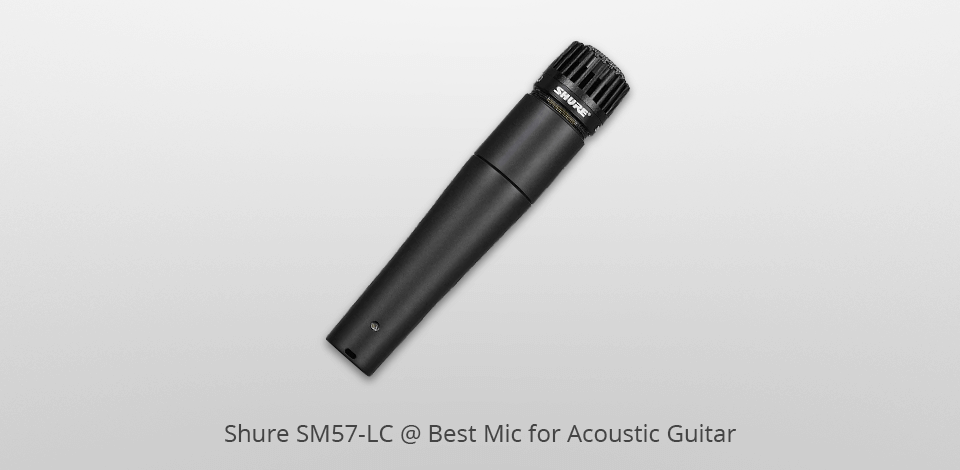
Power: 24 V | Polar patterns: Unidirectional | Connectivity: Wired | Frequency response: 40 Hz - 15 kHz
The Shure SM57-LC microphone is also one of the few guitar mic models that have a frequency response that is very good. Its frequency response is great when compared to other popular mics in the market today. The microphone is also able to capture high quality audio and is great for recording live performances by you or your band. One great thing about this unit is that its cardioid pattern is able to capture the sound from both the front and the rear of the guitar and the snare drum without losing the quality of the sound that comes through.
Another feature that makes the Shure SM57-LC microphone stand out is its noise immunity feature. This is another great feature for a microphone as it allows microphones to be placed in locations where there is a lot of noise without having to worry about damaging the sound quality. Other great features that you can expect to find on this microphone are an anti-static plate, a precision damping membrane and sealed box base.
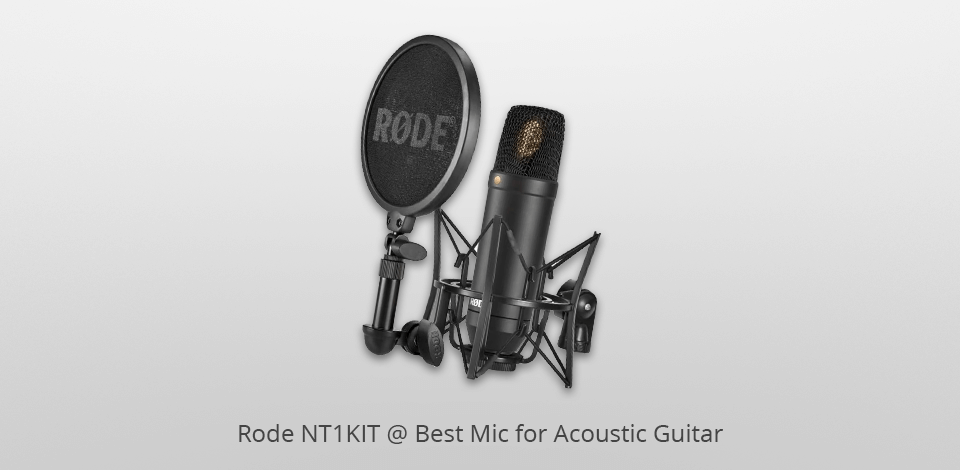
Power: 24 V | Polar patterns: Unidirectional | Connectivity: Wired | Frequency response: 20 Hz - 20 kHz
Rode NT1KIT guitar package is one of the newest innovations in guitar signal processing technology. It is an extremely easy-to-use digital microphone and excellent studio quality, highly improves your recording potential. Its single channel AI-1 USB audio interface features an ultra-low noise diaphragm, delivering extremely low distortion. Its cardioid microphone pattern is ideal for singing and recording acoustic guitar.
The Rode NT1KIT guitar player's multi-effects processor is probably the most innovative software in the market today. You can use the onboard compressor, delay, tremolo, and even digital delays to customize the sounds delivered from your guitar. The super sensitive monitor knob lets you monitor the tonal qualities of each component of the signal, allowing you to easily fine-tunuate your recording.
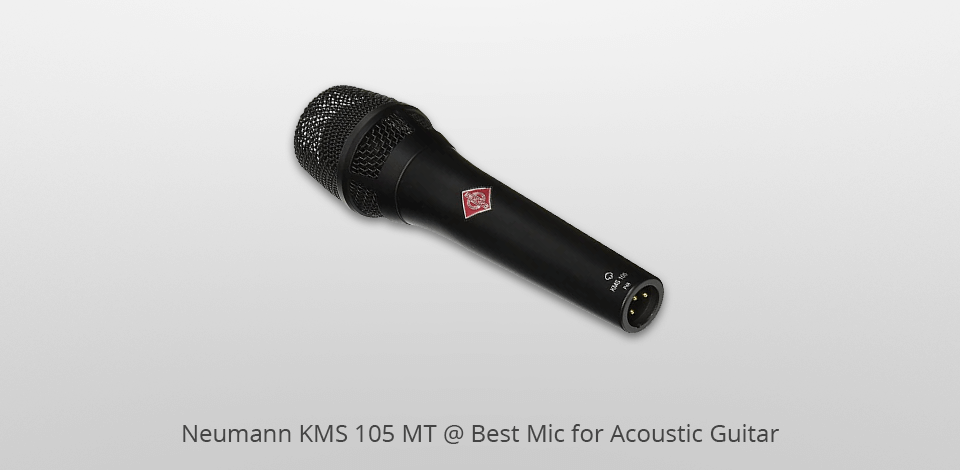
Power: 48V | Polar patterns: Unidirectional | Connectivity: XLR | Frequency response: 20 Hz - 20 kHz
Neumann KMS 105 is a professional level microphone designed for professional guitar players who perform live in front of an audience. This microphone has a built in diaphragm for a lightweight mic and a pre-amp for guitar sound processing. The knobs and volume knobs are used to switch between microphone conditions. The cardioid pattern of this microphone is preferred by many of today's guitar players for its accurate reproduction of guitar tones.
This model employs a large diaphragm for a more refined reproduction of the acoustic sound produced. The knobs have large and clear texture to set a precise tone control, while the tone control knobs have large and clear textured surface to give the listener the feeling of large diaphragm. The KMS is a great addition to any professional music studio or guitar player's rack.
| IMAGE | NAME | FEATURES | |
|---|---|---|---|

|
AKG C451 B
Easy to install
|
CHECK PRICE → | |

|
Audio-Technica AT4047/SV
Stylish
|
CHECK PRICE → | |

|
Shure SM57-LC
Multifunctional
|
CHECK PRICE → |
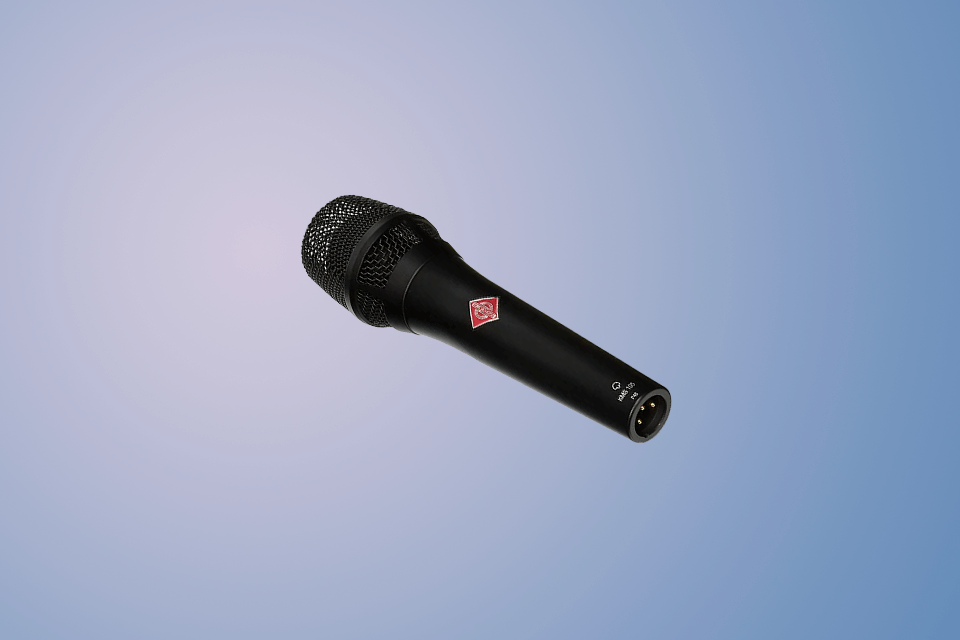
Cardioid is the most popular pattern employed by microphone manufacturers, mainly due to how simple, elegant, and efficient it is. It’s particularly well-suited for recording single-track sources like acoustic guitars when you simply have to find the ideal microphone placement and play. That said, it might be worth getting a microphone that supports several polar patterns so that you can use them to record multiple instruments at the same time if such a need arises in the future.
Keep in mind that different models might have an identical polar pattern but offer differing sensitivities at different capture levels. Some excel at recording the sound produced right in front of them while others capture the entire room.
Pads are useful for helping the mic manage loud audio sources more efficiently, particularly if the source is very close to the device. Since the produced volume largely depends on the person who’s playing the guitar, you can greatly benefit from the increased positioning freedom that padded microphones bring to the table.
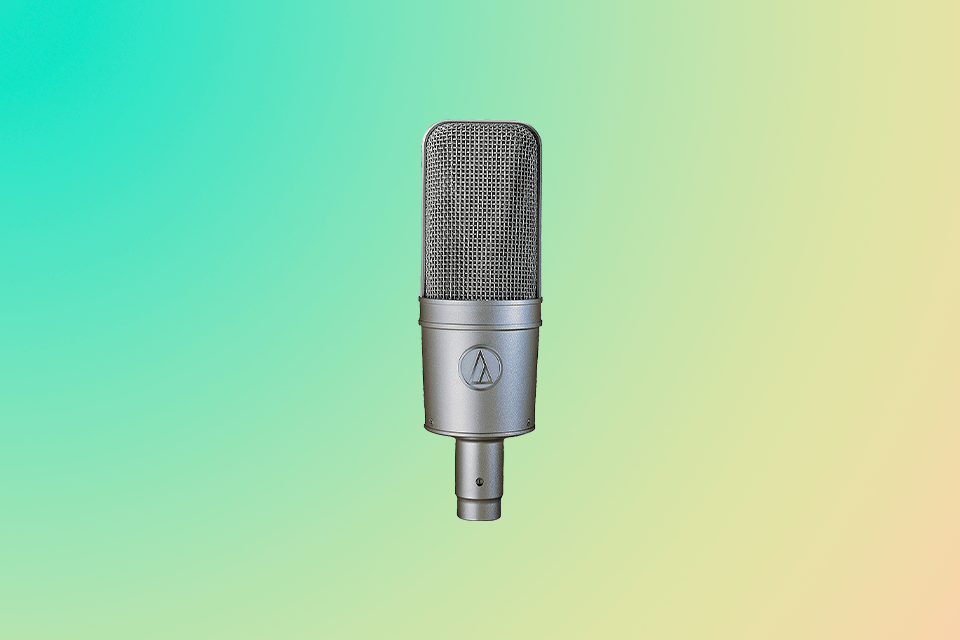
Nowadays, the majority of condenser microphones are supplied with rugged metal exteriors, but you should still read the product’s description and check out its images to see if the device looks sturdy enough. This aspect is worth noting because acoustic guitar recordings have you reposition the microphone a lot more than you would when recording vocals, so you always run the risk of accidentally bumping it and having the mic fall over.
One of the advantages of modern recording standards is that you don’t have to follow any strict rules. Plenty of recording techniques was created accidentally out of pure experimentation, sometimes by simply placing the mic where it theoretically shouldn’t have been.
However, if you’d like to achieve a traditional, warm sound with your acoustic guitar, then some micing advice can be useful. If you put the mic near the neck of the guitar, you’ll put more focus on the bass range and less focus on the player’s skill.
If, for instance, you want to record a fingerpicked melody with all the tiniest details that go into playing it, you should put the microphone near the soundhole to capture the resonance created by your finger's attacks.